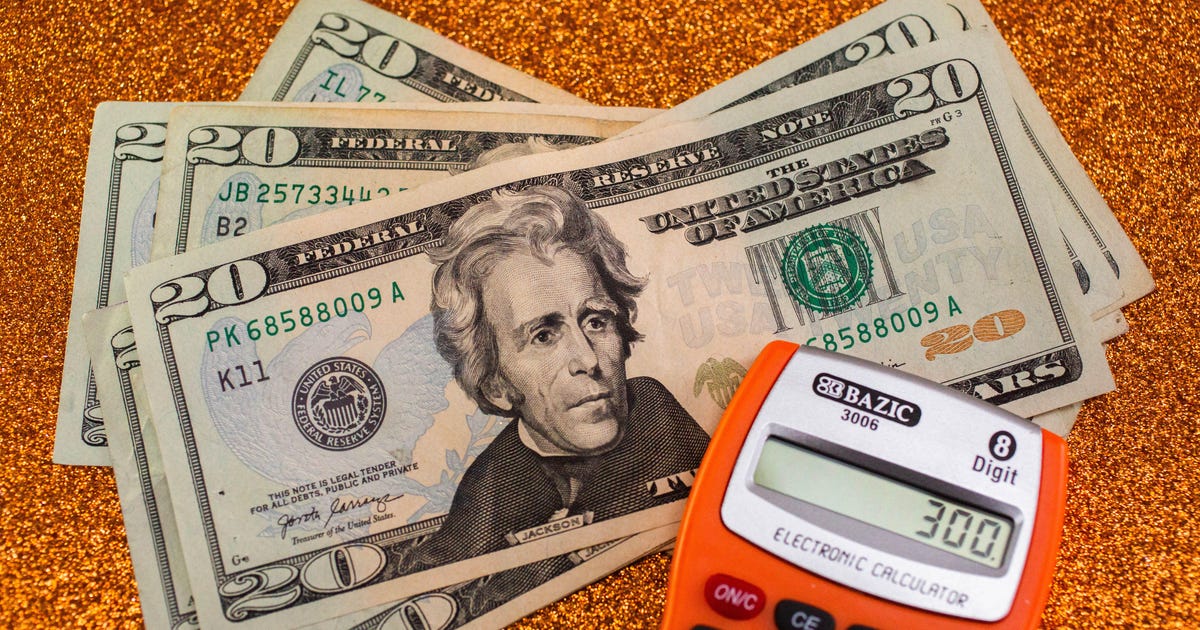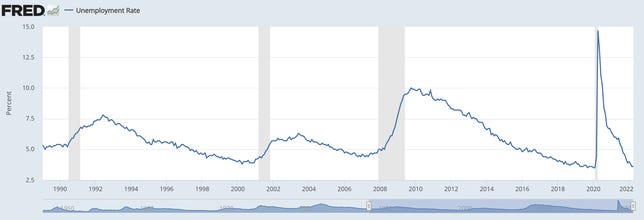After Getting Laid Off, File For Unemployment Immediately: Here's How To Do It

After Getting Laid Off, File for Unemployment Immediately: Here's How to Do It
This story is part of Recession Help Desk, CNET's coverage of how to make smart money moves in an uncertain economy.
Even as the official US unemployment rate remains low, the threat of layoffs looms. An Aug. 18 PwC Pulse Survey of business leaders shows that 50% of respondents are reducing the size of their workforces. Computer giant Apple and online furniture retailer Wayfair both announced layoffs in the past few days.
For the week ending Aug. 13, there were 250,000 weekly new unemployment claims and 1,437,000 continued claims, or repeated claims for unemployment benefits after an initial claim. That's a lot of people.
Higher prices on gas, groceries and other essential products make losing a job extra painful. So do higher APRs on credit cards due to increased interest rates. The good news is that if you lost your job and weren't negligent, you can probably start collecting money from unemployment benefits. Learn how unemployment insurance works, how to see if you're eligible, how to apply and how much money you might expect to receive.
For more advice in uncertain economic times, visit the CNET Recession Help Desk.
What is unemployment insurance?
If you lose your job, money from unemployment insurance can help you stay afloat until you can find a new place to work. Compensation usually comes in the form of weekly payments, either as paper checks, direct deposits or state-issued debit cards. The money for unemployment insurance payments comes from state and federal taxes on employers.
Who qualifies for unemployment benefits?
As always, the eligibility requirements for unemployment benefits vary from state to state, and you'll need to check your state's unemployment office to determine your eligibility. Here are phone numbers and websites for state unemployment insurance offices.
All states require claimants for unemployment insurance to have a minimum amount of wages earned or months worked during a base period of time, according to the National Academy of Social Insurance.

The current unemployment rate is far lower than peaks in 2010 and 2020.
Freddie Mac and St. Louis FedIn general, if you lost your job through no fault of your own and have a recent work history of 12 to 18 months or greater, you should qualify for at least some form of unemployment compensation. If you were fired for misconduct, you're out of luck. If you were fired for other reasons, your eligibility will depend on many factors, including the state you live in, so you're best off filing a claim.
The federal CARES Act that was passed in March 2020 at the start of the COVID-19 pandemic extended unemployment benefits to gig workers and self-employed people, but those protections expired in September 2021.
How much do employment benefits pay?
Statistics for average unemployment payments are not worth much, since your payment will depend heavily on the state where you live. For example, Washington has a $929 maximum weekly unemployment insurance payment, and Massachusetts goes even farther with a possible $974 per week.
On the other end of the spectrum, Mississippi has a maximum weekly benefit of $235, while Arizona's maximum is $240. States have their own methods for calculating unemployment compensation, and usually explain them in detail on their unemployment websites. See the list of state links below to find your own.
Unemployment insurance payments are federally taxed, and you must report any money you receive from unemployment when you file your yearly tax return. The IRS excluded $10,200 in unemployment benefits for the tax year 2020 due to the COVID-19 pandemic, but the exclusion was limited to only that year.
According to the IRS, you can ask for 10% of your unemployment benefits be withheld from your payments to avoid a tax surprise.
When should I apply for unemployment benefits?
Immediately. As soon as you learn that you're being laid off, look up your state's unemployment website and learn what you need to do to apply.
Several states require "waiting weeks," or a one-week period without pay, for your unemployment benefit payments to start.
How do I apply for unemployment benefits?
Each state has its own process for deciding who's eligible for unemployment benefits and how to apply. State requirements can change based on new legislation, so the best place to start is always the website of your state's labor department, which might also be called a workforce or employment department.
CareerOneStop, a career education website sponsored by the US Department of Labor, hosts an unemployment benefits finder for all 50 US states, the District of Columbia, Puerto Rico and the US Virgin Islands.
Or file an application for unemployment using your own state's link from the list below:
How soon will I start receiving unemployment benefits?
The Department of Labor says that it should take about two to three weeks after filing an initial claim to start receiving your unemployment benefits, if you've been determined eligible but your state.
The spike in unemployment at the start of the COVID-19 pandemic slowed down processing of claims considerably, but the recent low unemployment rate has made it easier for states to keep up.
How long can I receive unemployment benefits?
Most US states provide 26 weeks, or half a year, of unemployment benefits, according to the Center on Budget and Policy Priorities. Massachusetts (30 weeks) and Montana (28 weeks) provide slightly more time.
Eight other states provide less than 26 weeks of unemployment benefits:
- Idaho: 21 weeks
- Missouri: 20 weeks
- South Carolina: 20 weeks
- Arkansas: 16 weeks
- Kansas: 16 weeks
- Alabama: 14 weeks
- Florida: 12 weeks
- North Carolina: 12 weeks
The federal Extended Benefits program, established by the Federal-State Extended Unemployment Compensation Act of 1970, provides up to 13 more weeks of unemployment benefits to states suffering from high levels of employment.
No states are currently experiencing those levels now, however. Extended federal unemployment payments from the CARES Act expired with the protections for self-employed people in September 2021.
For more, learn about which states are offering inflation relief to residents and seven timely moves to make after losing a job.
Source
Tags:
- After Getting Laid To Rest
- After Getting Laiden
- After Getting Laidig
- After Getting Laidlaw S Harley Davidson
- After Getting Laidley
- After Getting Wisdom Teeth Pulled
- Can You Swim After Getting A Tattoo
- Can You Go Swimming After Getting Ears Pierced
- No Contact Rule After Getting Dumped
- How Soon After Getting Covid Can You Get It Again
